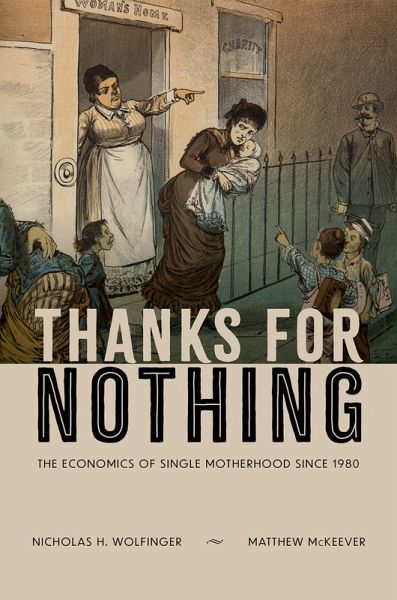
Thanks for Nothing
The Economics of Single Motherhood since 1980
Versandkostenfrei!
Versandfertig in über 4 Wochen
37,99 €
inkl. MwSt.
Weitere Ausgaben:

PAYBACK Punkte
19 °P sammeln!
Single mothers face unique economic challenges, which have persisted despite women's gains in higher education and the workplace. Drawing on forty years of data from two national surveys, Nicholas H. Wolfinger and Matthew McKeever explore the contradictions that lie at the heart of single motherhood. They find that some single mothers are doing better even as others have fallen through the cracks. Providing an in-depth look into the economics of single motherhood, Thanks for Nothing offers the most detailed statistical portrait of single mothers to date and, importantly, provides concrete sugg...
Single mothers face unique economic challenges, which have persisted despite women's gains in higher education and the workplace. Drawing on forty years of data from two national surveys, Nicholas H. Wolfinger and Matthew McKeever explore the contradictions that lie at the heart of single motherhood. They find that some single mothers are doing better even as others have fallen through the cracks. Providing an in-depth look into the economics of single motherhood, Thanks for Nothing offers the most detailed statistical portrait of single mothers to date and, importantly, provides concrete suggestions for how policymakers should respond to persisting inequalities among mothers.













